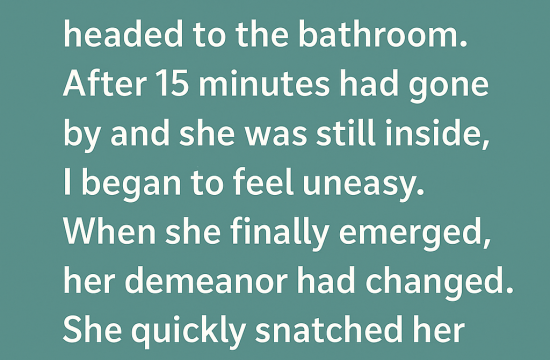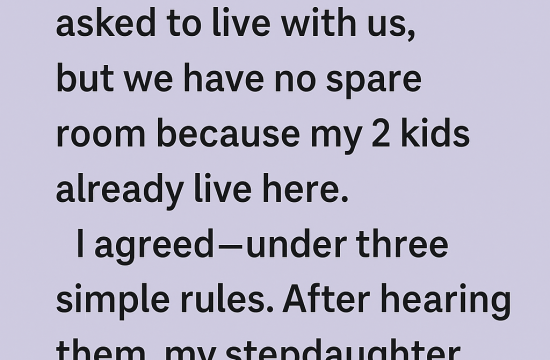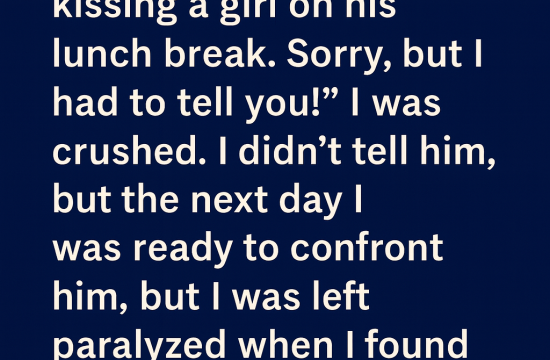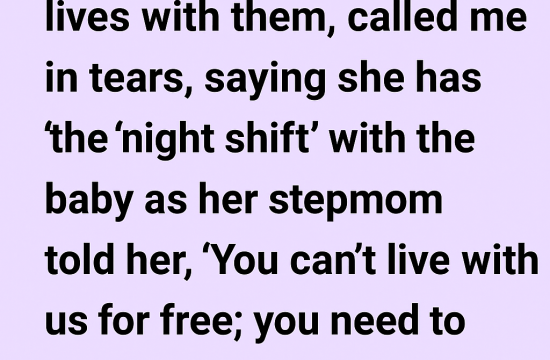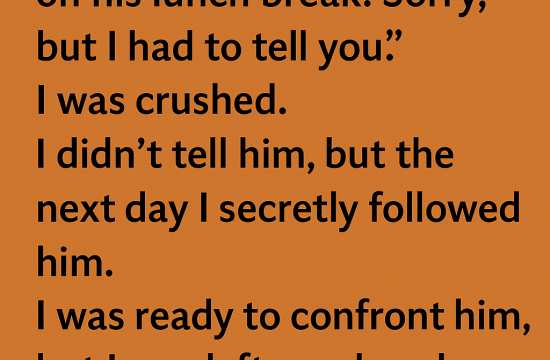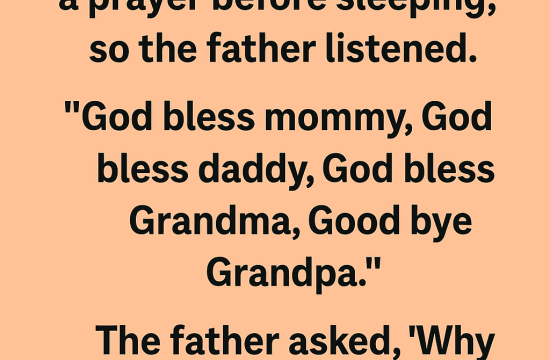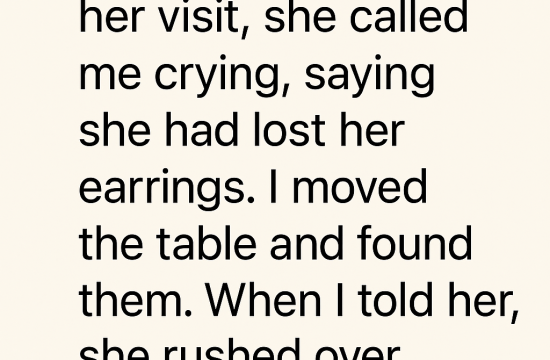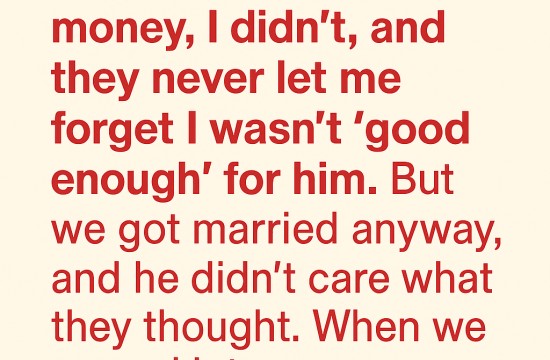I’m a widow, and I work as a cleaner to keep my son safe, fed, and proud of who we are. But one party invitation reminded me that not everyone sees us the same way. When he came home in tears from a rich classmate’s birthday, I knew something was very wrong—and I wasn’t going to stay quiet.
The alarm clock’s shrill cry pierced our tiny apartment, another reminder that survival was an everyday battle. My name is Paula, and I’ve learned to live on grit and faith alone.
It’s been seven years since my husband, Mike, died in a motorcycle accident that shattered our lives. Now, at 38, I’m a single mother with calloused hands, an aching back, and a heart that refuses to surrender.
My son, Adam, twelve years old and full of light, is my reason for everything. Each morning, I watch him prepare for school—his uniform neatly pressed, his face full of purpose.
“Don’t worry, Mom,” he says proudly. “When I grow up, I’ll take care of you.”
Those words are my oxygen.
I work as a cleaner for Mr. Clinton, who owns the company that keeps our town running—and me barely surviving. Every paycheck is a bridge between desperation and dignity. I scrub floors, polish glass, and pray that my son never feels ashamed of me.
Then, one evening, Adam burst into the kitchen, his face glowing.
“Mom! Simon invited me to his birthday! You know—Simon Clinton!”
My heart skipped. My boss’s son. Their worlds were marble floors and swimming pools. Ours was chipped tiles and thrift-store dreams.
“Are you sure you want to go, sweetie?” I asked softly.
“Yes! Please?”
I hesitated. But the joy in his voice made saying no impossible.
“All right,” I said. “We’ll find you something nice to wear.”
We visited the thrift shop that weekend. Adam picked a blue button-down—slightly big but clean.
“It’ll do,” I said, smoothing the fabric. “You’ll look perfect.”
That night, as I ironed the shirt, he asked quietly, “Mom… what if they laugh at me?”
I smiled, touching his cheek. “Then they’ll only show who they are—not who you are.”
The day of the party came. He looked handsome, nervous, hopeful.
“Remember,” I whispered as I dropped him off before the grand house, “you belong anywhere your heart is kind.”
He smiled. “I will, Mom.”
But when I picked him up hours later, that smile was gone. His eyes were red. His small hands clenched.
“Baby?” I asked gently. “What happened?”
He didn’t answer. Not until we reached home. Then, in a trembling voice, he whispered,
“They made fun of me… They said I’m just like you. A cleaner.”
I froze.
“They gave me a mop,” he continued. “Simon’s dad laughed. Said I should practice—because one day I’d take your job.”
He swallowed hard. “They played a game called ‘Dress the Worker.’ They made me wear a janitor’s vest and called me ‘Little Cleaner.’ Everyone laughed. Then they gave me a plastic plate for cake. Said that’s how poor people eat.”
Tears blurred my vision. My hands shook.
“They didn’t just insult me,” I said quietly. “They tried to humiliate my son.”
Without thinking, I grabbed my keys.
“Mom, please don’t!” Adam cried.
But I was already halfway out the door.
At Simon’s mansion, I rang the bell. Mr. Clinton appeared, smug and startled.
“Paula?” he said, feigning politeness.
“How dare you let this happen?” I demanded.
He frowned. “You’re overreacting. They’re just kids—”
“Kids learn from adults like you!” I snapped. “You stood there while they mocked my child for being mine! For working hard! For surviving!”
His face hardened. “I think you should leave.”
“And I think you should be ashamed.”
“Consider yourself fired,” he said coldly. “We can’t have employees causing scenes.”
He shut the door.
The next day, silence filled our apartment. I stared at my laptop, scrolling through job listings with shaking hands. Adam sat beside me, quiet, broken. I wanted to cry, but I couldn’t let him see me fall apart.
Then the phone rang.
“Paula,” said Mr. Clinton’s voice, hesitant. “Can you come to the office?”
I almost laughed. “Why? Need a floor scrubbed before I go?”
“Please. Just come.”
I arrived hours later, ready for anything but what I saw—every employee gathered in protest. Maria from accounting, Jack from sales, even the warehouse crew. They were holding signs that said: Respect has no class.
Mr. Clinton stood pale before them.
“They’re refusing to work,” he admitted quietly. “They said what happened to you and your son was wrong… and they won’t return unless you do.”
I blinked back tears. “Why now?”
He swallowed hard. “Because they said it could’ve been any of them.”
He faced his employees. “Paula, I owe you an apology. To you and Adam. I failed as a father and as a man.”
The room was silent.
“I taught my son to measure people by wealth, not worth,” he continued. “But you showed me what real dignity looks like.”
I stepped forward, my voice steady. “Money doesn’t make you better, Mr. Clinton. Character does. And you can’t buy that with a paycheck.”
The staff broke into quiet applause. For the first time, I saw shame—and respect—cross his face.
I picked up my cleaning cloth, smiled faintly, and whispered to Adam later that night,
“See, sweetheart? We don’t need to be rich to be proud. We just need to stand tall.”
Sometimes, justice doesn’t roar—it shines quietly through the people who refuse to bow their heads.




